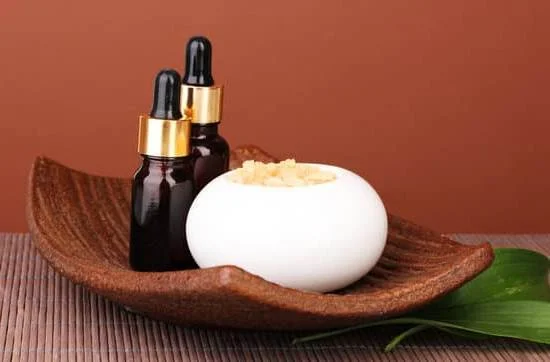Aromatherapy has been used for centuries for various health benefits, but does aromatherapy go beyond the blood-brain barrier? The blood-brain barrier is a crucial part of the body’s defense system, protecting the brain from harmful substances. In this article, we will explore the relationship between aromatherapy and the blood-brain barrier to understand its potential impact on neurological health and wellness.
Before delving into the interaction between aromatherapy and the blood-brain barrier, it is important to understand what aromatherapy is and how it is used for various health benefits. Aromatherapy involves using essential oils from plants to promote physical and psychological well-being. These essential oils are often used in massage, inhalation, or as part of holistic treatments.
As we explore the potential effects of aromatherapy on the brain and nervous system, we will also delve into the science of the blood-brain barrier. This semi-permeable membrane plays a crucial role in protecting the brain from toxins and other harmful substances circulating in the bloodstream. Understanding how molecules from essential oils interact with this barrier is key in determining their potential impact on neurological health.
Understanding Aromatherapy
Aromatherapy is a holistic healing treatment that uses natural plant extracts to promote health and well-being. It is often used in conjunction with other alternative and complementary treatments such as massage therapy, acupuncture, and chiropractic techniques. Aromatherapy is believed to be effective in treating a variety of conditions, including anxiety, depression, insomnia, and muscle pain.
The use of essential oils in aromatherapy can stimulate areas of your limbic system, which is a part of your brain that plays a role in emotions, behaviors, sense of smell, and long-term memory. As a result, the aromatic compounds from essential oils are thought to have an impact on the brain and nervous system. This begs the question: does aromatherapy go beyond the blood-brain barrier?
While there is ongoing research on this topic, some studies suggest that certain molecules from essential oils may indeed have the ability to pass through the blood-brain barrier. This has significant implications for neurological health and wellness as it opens up the possibility of using aromatherapy as a therapeutic modality for conditions that affect the brain.
Further research is needed to fully understand the extent to which aromatherapy can penetrate the blood-brain barrier and how it may be harnessed for therapeutic purposes. However, current evidence indicates that aromatherapy could potentially impact neurological health by directly influencing brain function through its interaction with the blood-brain barrier.
| Aromatherapy | Neurological Health |
|---|---|
| Aromatherapy uses natural plant extracts | Potential implications for conditions such as anxiety and depression |
| Stimulates areas of limbic system | Possibility of using aromatherapy for therapeutic purposes |
| Ongoing research on passing through blood-brain barrier | Directly influences brain function through interaction with blood-brain barrier |
Aromatherapy and the Brain
Aromatherapy has long been used as a form of alternative medicine to promote relaxation, alleviate stress, and improve overall well-being. This practice involves the use of essential oils derived from plants, which are then inhaled or applied to the skin.
Many proponents of aromatherapy claim that it can have a profound impact on the brain and nervous system, leading to potential benefits for neurological health. But how does aromatherapy go beyond the blood-brain barrier, and what are its potential effects on the brain?
The blood-brain barrier is a crucial component of the body’s defense system, designed to protect the brain from harmful substances. It consists of a highly selective membrane that only allows certain molecules to pass through, while blocking others.
This raises the question: Can the molecules of essential oils used in aromatherapy penetrate this protective barrier? Current research on this topic suggests that some components of essential oils may indeed have the ability to cross the blood-brain barrier, potentially impacting brain function.
One study published in Frontiers in Aging Neuroscience found that linalool, a compound commonly found in lavender essential oil, was able to reduce stress and anxiety in mice by acting on their GABA receptors in the brain. This suggests that certain components of aromatherapy may indeed have direct effects on brain neurotransmitters and receptors.
Another study in Evidence-based Complementary and Alternative Medicine demonstrated that inhaling peppermint essential oil vapor led to an increase in cognitive performance and alertness in human subjects. These findings provide valuable insights into how aromatherapy can influence brain function and neurological health.
| Aromatherapy Research | Impact |
|---|---|
| Frontiers in Aging Neuroscience study | Reduced stress and anxiety by acting on GABA receptors |
| Evidence-based Complementary and Alternative Medicine study | Increase in cognitive performance and alertness by inhaling peppermint essential oil vapor |
The Blood-Brain Barrier
Structure and Function of the Blood-Brain Barrier
The BBB is composed of tightly packed endothelial cells that line the blood vessels in the brain. These cells are connected by tight junctions, which form a physical barrier that restricts the passage of substances from the bloodstream into the brain. In addition to endothelial cells, astrocytes-star-shaped glial cells-surround the blood vessels and play a role in maintaining the integrity of the BBB. Pericytes also contribute to the regulation of permeability and vascular function within the barrier.
Protective Role of the Blood-Brain Barrier
The BBB acts as a protective shield for the brain, preventing harmful substances from entering its delicate environment. It helps maintain homeostasis within the brain by controlling the levels of ions, nutrients, and other molecules that can impact neuronal function. Additionally, it serves as a defense mechanism against potential neurotoxins, pathogens, and foreign substances that may be present in circulation.
Challenges in Drug Delivery to the Brain
While the BBB is essential for safeguarding neurological health, it also presents challenges when it comes to delivering medications or therapeutic agents to treat diseases or conditions affecting the brain. Many drugs are unable to effectively cross this barrier, limiting their ability to reach their intended targets within the central nervous system. Consequently, researchers are exploring various strategies to bypass or penetrate the BBB for more effective delivery of treatments for neurological disorders.
Through a better understanding of how does aromatherapy go beyond blood-brain barrier?, we can assess its potential impact on neurological health and wellness. Unlocking this aspect can offer valuable insights into how aromatherapy may affect brain function and potentially influence conditions such as anxiety, depression, and stress at a molecular level.
Future research endeavours will continue to shed light on these intricate interactions between aromatherapy and neurological pathways through gaining an understanding regarding penetration beyond blood-brain barrier for essential oil molecules.
Can Aromatherapy Penetrate the Blood-Brain Barrier?
Aromatherapy has been used for centuries as a holistic approach to promoting health and wellness. The practice involves the use of essential oils, which are derived from plants, to improve physical, emotional, and mental well-being. It is believed that the inhalation or topical application of these oils can have therapeutic effects on the body. However, one question that researchers continue to explore is whether these essential oil molecules can penetrate the blood-brain barrier.
The blood-brain barrier is a highly selective membrane that separates the circulating blood from the brain’s extracellular fluid. This barrier plays a crucial role in protecting the brain from potentially harmful substances such as toxins and pathogens. Its selective permeability allows only certain molecules to pass through, while blocking others from entering the brain tissue.
Current research on aromatherapy and the blood-brain barrier suggests that some essential oil molecules may indeed be able to cross this protective barrier. Studies have found evidence that certain aromatic compounds present in essential oils, such as linalool and limonene, have been detected in the brain tissue after inhalation or absorption through the skin. This indicates that these molecules are capable of passing through the blood-brain barrier and reaching their target sites within the central nervous system.
- Recent studies on whether specific essential oil compounds can cross the blood-brain barrier
- The potential implications for neurological health and wellness if aromatherapy does go beyond this protective barrier
- How understanding this interaction can lead to more effective use of aromatherapy for conditions like anxiety, depression, and stress
Aromatherapy and Neurological Health
Aromatherapy has long been used as a natural remedy for various health issues, including stress, anxiety, and headaches. The practice involves using essential oils derived from plants to promote physical and psychological well-being. Many proponents of aromatherapy claim that it can have positive effects on neurological health, but the question remains: does aromatherapy go beyond the blood-brain barrier to directly impact the brain?
Research suggests that certain molecules in essential oils may have the ability to affect neurotransmitter activity in the brain. For example, linalool, a common component of lavender essential oil, has been found to have relaxing and anti-anxiety effects by modulating GABA receptors. If these molecules are able to cross the blood-brain barrier, it opens up possibilities for using aromatherapy as a complementary treatment for neurological conditions.
Influence on Mood and Emotions
The olfactory system is closely linked to the limbic system in the brain, which is responsible for regulating emotions and memories. This connection is why certain scents can trigger powerful emotional responses. If aromatherapy molecules can indeed pass through the blood-brain barrier, they could potentially exert direct influence on mood and emotional well-being. This could have far-reaching implications for individuals struggling with mood disorders such as depression or PTSD.
Overall, while more research is needed to conclusively determine whether aromatherapy can penetrate the blood-brain barrier, current evidence suggests that it may indeed have direct effects on neurological health when used appropriately.
Practical Applications of Aromatherapy
Aromatherapy has been used for centuries as a holistic healing practice, harnessing the power of essential oils to promote overall well-being. One of the key questions surrounding aromatherapy is whether its benefits extend beyond just the sense of smell and actually impact the brain and nervous system. Understanding how essential oils interact with the blood-brain barrier is crucial in exploring the potential implications for conditions such as anxiety, depression, and stress.
While traditional medicine often focuses on directly targeting symptoms, aromatherapy takes a different approach by utilizing natural extracts from plants to support the body’s own healing processes. When it comes to mental health conditions like anxiety and depression, conventional treatments primarily involve medications that can carry side effects. This has led researchers to investigate whether aromatherapy could offer a gentler yet effective alternative, particularly if it can indeed cross the blood-brain barrier.
Current research suggests that certain molecules found in essential oils may have the ability to permeate the blood-brain barrier and influence neurotransmitter activity within the brain. For example, studies have shown that compounds like linalool found in lavender oil have potential anxiolytic (anxiety-reducing) effects, indicating that aromatherapy could be a promising complementary therapy for individuals struggling with anxiety disorders.
With continued exploration into this area, there is growing interest in utilizing aromatherapy as part of integrative approaches to mental health care.
- Essential oils containing linalool such as lavender oil can potentially reduce anxiety
- Peppermint oil may help improve mood and decrease symptoms of depression
- Bergamot oil has been studied for its stress-relieving properties
Overall, while more research is needed to fully understand how aromatherapy influences neurological health through interactions with the blood-brain barrier, current evidence offers promising insights into its potential applications for addressing conditions such as anxiety, depression, and stress. As interest in alternative therapies continues to grow, aromatherapy may play an increasingly significant role in promoting mental wellness alongside conventional treatment approaches.
- More research on specific essential oils’ effects on neurological health is needed
- Aromatherapy could be integrated into mental health care practices
- Understanding how essential oils impact brain function is crucial for expanding their practical applications
Conclusion
In conclusion, the interaction between aromatherapy and the blood-brain barrier is a topic of great interest in the field of alternative medicine and neuroscience. While the blood-brain barrier plays a crucial role in protecting the brain from harmful substances, there is growing evidence to suggest that certain molecules present in essential oils used in aromatherapy may have the ability to penetrate this protective barrier. This raises intriguing possibilities for how aromatherapy could potentially impact neurological health and wellness.
The potential implications of aromatherapy being able to cross the blood-brain barrier are significant. If certain molecules in essential oils can indeed reach the brain, this opens up new pathways for using aromatherapy as a complementary treatment for conditions such as anxiety, depression, and stress. Additionally, understanding how aromatherapy interacts with the blood-brain barrier could lead to the development of more targeted and effective therapeutic interventions for neurological disorders.
As research on this topic continues to expand, it will be important to consider the safety and ethical implications of harnessing the power of aromatherapy to influence brain function. Furthermore, more studies will be needed to fully understand the mechanisms behind how essential oil molecules may affect brain activity after crossing the blood-brain barrier. Overall, exploring the potential of aromatherapy to go beyond the blood-brain barrier has promising implications for both holistic health practices and conventional medical treatments.
Frequently Asked Questions
Do Essential Oils Cross the Blood-Brain Barrier?
Essential oils have the potential to cross the blood-brain barrier, as some studies suggest. This barrier is selective in what it allows into the brain, but certain essential oil compounds may have the ability to penetrate it.
Do Essential Oils Enter the Bloodstream?
Yes, essential oils can enter the bloodstream. When inhaled or applied topically, the volatile compounds in essential oils can be absorbed into the bloodstream and circulated throughout the body. This is one of the reasons why essential oils are popular for aromatherapy and massage.
What Can Get Past the Blood-Brain Barrier?
Certain molecules like oxygen, water, and certain medications can pass through the blood-brain barrier. Small lipid-soluble molecules may also have a better chance of crossing this selective barrier compared to large or charged molecules. The permeability of this barrier varies depending on different factors.

Are you looking for a natural way to improve your health and wellbeing?
If so, aromatherapy may be the answer for you.





